Feeling sleepy after a meal is a common experience for many people, but it can be concerning if it happens frequently. But when it comes to aswser the question “Is falling asleep after eating a sign of diabetes ?” Yes, one potential cause of post-meal fatigue is diabetes. However, it’s essential to consider other factors related to your diet and lifestyle that may contribute to this tiredness. In this article we will delve into the possible reasons for feeling sleepy after eating, the link to diabetes, and practical steps to address this issue.
Is falling asleep after eating a sign of diabetes ?
If you are looking for a precise answer to the question, is falling asleep after eating a sign of diabetes? In simple terms, it’s possible sometimes, but not necessarily.
Feeling sleepy after a meal might make you wonder if something’s wrong, like type 2 diabetes. This is a chronic condition where your body doesn’t respond well to insulin or doesn’t make enough of it, leading to unstable blood sugar levels.
Insulin is a hormone made by your pancreas, and it helps control your blood sugar by letting glucose enter your cells for energy. But glucose stays in your blood if your cells don’t react properly to insulin (insulin resistance). This may cause serious health issues like heart disease, kidney issues, nerve damage, and even vision problems.
For people with diabetes, sleepiness can be linked to either low blood sugar (hypoglycemia) or high blood sugar (hyperglycemia).
Reduced insulin sensitivity is a key reason why those with diabetes might feel tired after eating. When your body doesn’t use insulin well or make enough, you might lack energy, leading to drowsiness.
However, it’s important to know that feeling sleepy after meals doesn’t always mean you have a health problem or diabetes to be precise. Many other factors can contribute to this tiredness.
Understanding the Post-Meal Sleepiness & other factors :

Feeling sleepy after eating might worry some people, thinking “is falling asleep after eating a sign of diabetes ?”. However, it’s essential to know that there are various reasons for post-meal sleepiness, and diabetes is just one possibility.
Falling asleep after eating is a common experience and can be attributed to several factors:
- Blood Flow Redistribution: After a meal, your body directs more blood flow to your digestive system to help with digestion. This redirection of blood can make you feel less alert and more tired.
- Insulin Release: When you eat, your body releases insulin to help regulate blood sugar levels. This can lead to increased brain uptake of specific amino acids, such as tryptophan. Tryptophan is a precursor to serotonin, a neurotransmitter that plays a role in regulating sleep and mood. Elevated serotonin levels can make you feel drowsy.
- Carbohydrates and Serotonin: Consuming carbohydrates can cause a rapid release of insulin, which in turn promotes the uptake of amino acids into cells. This process enhances the production of serotonin and may contribute to the feeling of sleepiness.
- Digestive Hormones: Digestion triggers the release of various hormones, including cholecystokinin and somatostatin. These hormones can have a relaxing effect on the body and lead to drowsiness.
- Parasympathetic Nervous System: After eating, your body activates the parasympathetic nervous system, often called the “rest and digest” system. This activation slows down heart rate and promotes relaxation, which can contribute to feeling sleepy.
- Energy Consumption: The digestion process requires energy, and the body may temporarily redirect energy from other functions, making you tired.
- Large Meals: Eating large, heavy meals can be incredibly tiring, requiring more digestive effort and energy expenditure.
The Connection Between Diet and Sleepiness:
If you frequently ask yourself, “Why do I fall asleep after eating? Is falling asleep after eating a sign of diabetes ?” the answer lies not only in diabetes but also in your diet and overall lifestyle. High blood sugar levels may lead to feelings of fatigue and sluggishness when they suddenly drop, even in individuals without diabetes. This post-meal energy dip can result from consuming sugary and high-carb foods such as bread, pasta, rice, and ice cream.
One way to address this is by making dietary changes and limiting the intake of such foods. The Virta app offers numerous easy-to-make recipes that can inspire you to adopt a healthier eating pattern.
The Role of Lifestyle:
Beyond diet, lifestyle plays a significant role in your energy levels. While exercise might leave you feeling tired in the short term, it has been shown to improve sleep quality and overall energy levels in the medium to long term. Physical activity or workouts on a regular basis can be beneficial for your sleep patterns and general well-being. So if you are asking yourself the question “is falling asleep after eating a sign of diabetes ?”, the role of lifestyle is also to be taken into consideration.
In addition, your sleep habits can affect your energy levels throughout the day.
Identifying Fatigue Related to Diabetes:

As an answer to ” is falling asleep after eating a sign of diabetes ?” we have found that sleepiness after eating can be linked to diabetes, it’s crucial to recognize the specific symptoms that may indicate this condition. For individuals with type 2 diabetes, post-meal sleepiness could result from high blood sugar (hyperglycemia) or low blood sugar (hypoglycemia). Alongside fatigue, other common symptoms of diabetes may include:
- Blurry Vision: Diabetes can impact the eyes, leading to blurred or hazy vision.
- Frequent Urination: People with diabetes may experience increased urination, especially at night.
- Intense Thirst: Excessive thirst can indicate elevated blood sugar levels.
- Numbness or Tingling in Hands or Feet: Diabetes-related nerve damage may cause tingling or numbness in extremities.
- Slow Healing Sores or Cuts: High blood sugar can impair the body’s healing process.
- Unintentional Weight Loss: In some cases, unexplained weight loss can be a symptom of diabetes.
- Dry Skin: Diabetes may cause dry, itchy skin due to dehydration.
- More Frequent Infections: Individuals with diabetes may experience frequent infections due to compromised immune function.
If you are experiencing any of these symptoms, it’s essential to consult with your healthcare provider. They can conduct blood tests to determine if you have diabetes and devise an appropriate management plan.
How Diabetes Affects Sleep
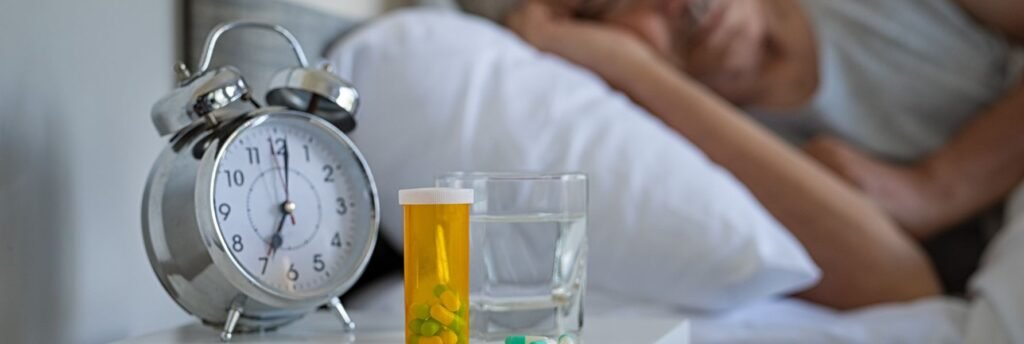
As we have already discuussed the possible answers to the question ” is falling asleep after eating a sign of diabetes? “. Let us also find out how diabetes affects your sleep.
While falling asleep after eating isn’t a clear sign of diabetes, the condition can still impact sleep in different ways:
- Sleep Apnea: Sleep apnea, common in type 2 diabetes, causes breathing pauses during sleep, leading to poor sleep quality and daytime sleepiness.
- Nocturia: Frequent urination, a common diabetes symptom, can disrupt sleep by causing individuals to wake up multiple times during the night.
- Neuropathy: Diabetic neuropathy, and nerve damage from high blood sugar levels, can cause discomfort or numbness in the extremities, making it hard to find a comfortable sleeping position.
- Restless Leg Syndrome (RLS): RLS, characterized by uncomfortable sensations and an urge to move legs, is linked to diabetes and can interfere with sleep.
- Insomnia: Stress and anxiety related to diabetes management can cause insomnia, making it difficult to fall and stay asleep.
Importance of Timely Diagnosis
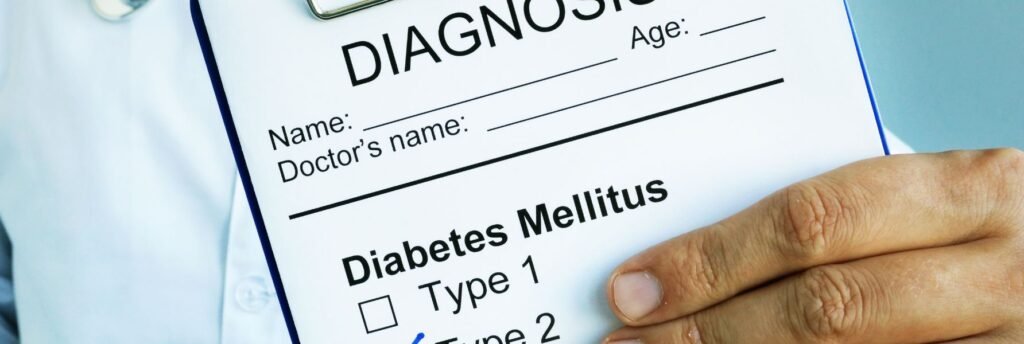
If you are experiencing post-meal sleepiness and wondering ” is falling asleep after eating a sign of diabetes “, getting an early and accurate diagnosis is extremely important. This is because identifying the condition in its early stages allows you to begin treatment promptly. This prompt treatment is beneficial for effectively handling diabetes and avoiding potential complications that may arise from it.
Furthermore, receiving the appropriate treatment is also important. Insulin injections are necessary for managing Type 1 diabetes, whereas Type 2 diabetes can be controlled through insulin usage, specific lifestyle adjustments, and prescribed medications.
Once you have been diagnosed with diabetes, it becomes essential to monitor your health actively. This involves regular tracking of your blood sugar levels to ensure your well-being. By doing so, you not only manage your diabetes better but also ensure the overall health of various other aspects of your body.
Healthy Eating Habits to Avoid Post-meal Sleepiness

While exploring the answer to ” is falling asleep after eating a sign of diabetes ?” Let us also discuss how to avoid post-meal sleepiness with healthy eating habits.
Maintaining a well-balanced diet is extremely vital for maintaining good health, regardless of whether someone has diabetes or not. A healthy eating routine can help manage blood sugar levels, promote better sleep, and enhance overall well-being. Here are some dietary tips that can benefit everyone:
Emphasize Whole Foods
Incorporating a range of whole foods, like vegetables, fruit, lean protein, whole grain, and healthy fats, can supply vital nutrients and help maintain stable blood sugar levels.
Mindful Eating
Practicing mindfulness while eating requires focusing on the textures, flavours, and satisfaction experienced during meals. This practice helps in preventing overeating and improving digestion.
Portion Control
Controlling portion sizes is essential for managing blood sugar levels and preventing post-meal energy dips. Smaller, more frequent meals can help sustain energy levels throughout the day.
Limit Processed Sugars and Carbs
It is recommended to choose complex carbohydrates and natural sweeteners over excessive processed sugars and refined carbohydrates, as they can cause rapid fluctuations in blood sugar levels.
Stay Hydrated
Staying hydrated is very important for maintaining good health. Sufficient water intake is essential for proper digestion, nutrient absorption, and optimal energy levels.
To summerise, if you experience the post-meal sleepiness and wondering “is falling asleep after eating a sign of diabetes ?”, then you may try incoporating above eating habits.
FAQs
Is falling asleep after eating a sign of diabetes ?
Feeling sleepy after meals doesn’t always mean you have diabetes to be precise. Many other factors can contribute to this tiredness like diet, lifestyle etc.
Can diabetes cause excessive daytime sleepiness?
Yes, diabetes can contribute to daytime sleepiness, especially with sleep apnea being more common in those with diabetes.
Can controlling blood sugar levels improve sleep quality?
Controlling blood sugar levels through medication, diet, and lifestyle changes can positively affect sleep quality.
Is it normal to feel sleepy after a heavy meal?
Yes, feeling sleepy after a big meal is normal due to increased blood flow to the digestive system.
How can I differentiate between normal post-meal sleepiness and diabetes-related fatigue?
If you experience persistent fatigue, frequent urination, excessive thirst, and unexplained weight loss, consult a healthcare professional for evaluation.
Conclusion
To conclude, “is falling asleep after eating a sign of diabetes ?”, feeling sleepy after eating can be influenced by various factors, and diabetes is one of them. However, it’s crucial not to jump to conclusions. Adopting a balanced diet, engaging in regular physical activity, and improving sleep habits can enhance your energy levels and overall well-being. If you suspect your post-meal fatigue is related to diabetes, seek professional medical advice and undergo necessary tests for proper diagnosis and management.
Remember, proactive care for your health can lead to a more energized and fulfilling life.

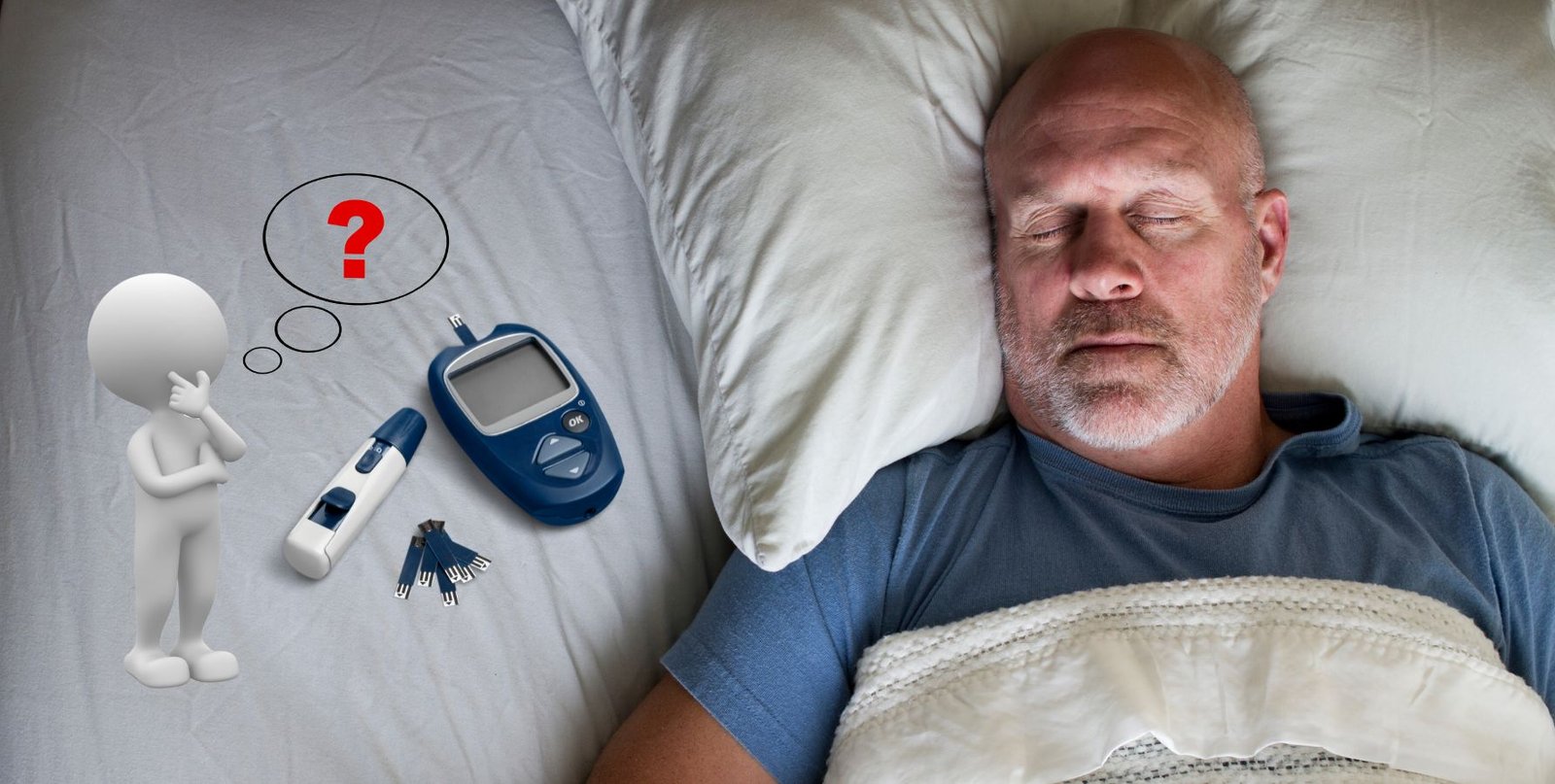

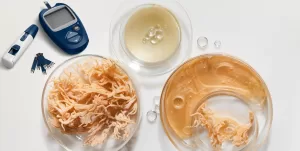

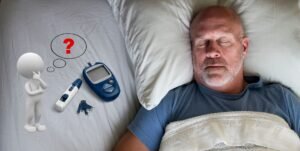

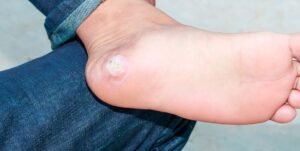
0 Comments